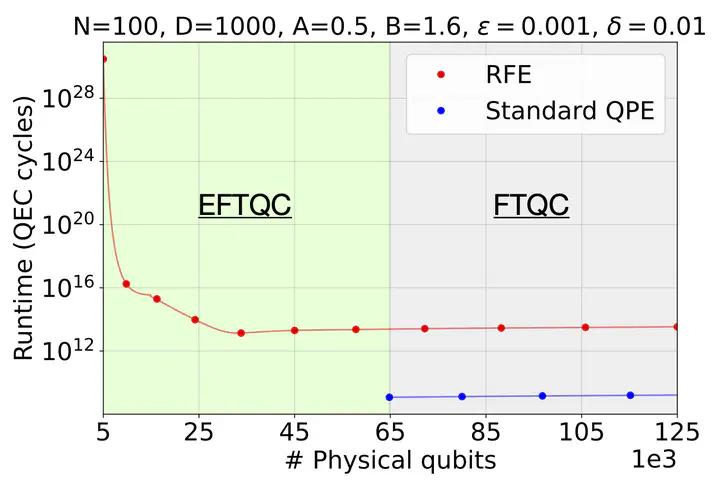 Cost Comparison
Cost ComparisonAbstract
Progress in fault-tolerant quantum computation (FTQC) has driven the pursuit of practical applications with early fault-tolerant quantum computers (EFTQC). These devices, limited in their qubit counts and fault-tolerance capabilities, require algorithms that can accommodate some degrees of error, which are known as EFTQC algorithms. To predict the onset of early quantum advantage, a comprehensive methodology is needed to develop and analyze EFTQC algorithms, drawing insights from both the methodologies of noisy intermediate-scale quantum (NISQ) and traditional FTQC. To address this need, we propose such a methodology for modeling algorithm performance on EFTQC devices under varying degrees of error. As a case study, we apply our methodology to analyze the performance of Randomized Fourier Estimation (RFE), an EFTQC algorithm for phase estimation. We investigate the runtime performance and the fault-tolerant overhead of RFE in comparison to the traditional quantum phase estimation algorithm. Our analysis reveals that RFE achieves significant savings in physical qubit counts while having a much higher runtime upper bound. We anticipate even greater physical qubit savings when considering more realistic assumptions about the performance of EFTQC devices. By providing insights into the performance trade-offs and resource requirements of EFTQC algorithms, our work contributes to the development of practical and efficient quantum computing solutions on the path to quantum advantage.